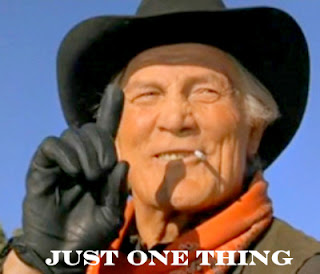(photo courtesy of Bob from the chive.com)
A Creator’s guide to surviving the winter of our discontent when tragedy strikes.
“Writing
a book is a horrible, exhausting struggle, like a long bout of some painful
illness. One would never undertake such a thing if one were not driven by some
demon whom one can neither resist or [sic] understand.” – George Orwell,
Why I Write
My four year old is in a blocks phase. Actually it’s a tower
phase. She’ll build a tower with almost anything that presents itself – those
jelly collections at the pancake house, vegetable cans from the pantry, the new
pile of library books…
I admit that this is an OCD game I can get behind. I love to
see how tall we can get the tower before it starts to wobble, before the
architecture cracks at the bottom and causes the top to finally topple.
Since the funeral, I understandably haven’t been myself. It
was enough to send my creative balance toppling.
The emotions of creative types often live at the surface and
run deep. That’s a good thing, serving us well as we channel it into whatever
creative endeavor we’ve chosen.
This latest event was a reminder of what a delicate balance the
whole thing is - too much emotion and we are blinded, unable to produce or
produce at our best, cascading into a spiral where we end up chopping off our
ears or obliterating ourselves with cocaine (no worries, my ears are still attached and I'm not in need of rehab. And, no, that's not the denial talking).
So what’s a girl in mourning who typically writes
lighthearted, funny mysteries to do?
For me what’s suffered most is my social media “platform
building”. This blog for instance which hasn’t had an update for weeks.
Anything even remotely twitter related…I want people to go away. At least for a
minute. I need time to process, to get back into balance.
My writing (thankfully) hasn’t suffered. I’m not writing
comedy, but I’m writing. A new WIP I’ve had churning for a while. I won’t know
if it’s any good until I get past my current funk, but words are hitting the
page and that means there’s at least a foundation to edit against.
But this is different. This is how to get writing again. Or
what to do when you shouldn’t be writing
because that balance just isn’t quite there. Because tragedy. Or life.
What follows isn’t one of those “you should do this” list.
Managing emotion, grief, sometimes depression, for any creative type is such a personal
thing, often cultivated over years. But if you're recovering from a tragedy or even an all around snapping turtle blues rough time, it might give you just one new idea,
one different perspective, one extra thing to try that might help re-balance
your stack.
Here’s what’s been helping me get my way back to center:
·
Be
Physical –
Scientifically proven to be better than antidepressants. A lot
of writers find walking a big comfort. Me, I demoed my bathroom. Nothing like a
five pound sledge smashing into porcelain tile, followed by the revving sound
of the saws-all as it clears the drywall. Seriously, better than therapy.
·
Mixed
Media therapy – If you’re a writer, paint. Painter? Sculpt. Your insides are
probably longing to create still and doing something in a media outside your
norm will give your ego permission to suck and do it anyway which will allow
for the above bullet to do its thing. I’m currently experimenting in pumpkin and
candy corn.
·
Routines
Help – eat, sleep, work, kids, write time…the same thing, every day.
Routines allow the body to function so that the mind can work through its stuff
unburdened by having to make every day decisions.
·
Purge
– find a friend you can unload to, write a letter that spews it all out, join a
support group…find a way to get it out in a safe place. See writing as a healer link above
· Give Yourself Permission - Tragedy is supposed to suck and grief moves at its own pace. Get off your own back and give yourself permission to feel like awful for a while.
·
Ask For
Help – I don’t know many people who are good at this. This comes with being
a Type A with a bunch of Type A friends. But sometimes we have to realize it’s
our only option for moving forward. Whether it’s something small, like asking
those around you to carry a bit more until you’re back on your feet, or
spending some comfy couch time with a pro, you owe it to those who love you not
to let your balance issues get too far out of control. Asking for help isn’t
weak. It’s what gets strong people through tough times.
Many of you have sent warm wishes and good thoughts. Thanks
for that. Those help too. So does your patience while I’m working to re-balance.
Creative friends – what’s your go to for restoring your
balance when life knocks you down?
























